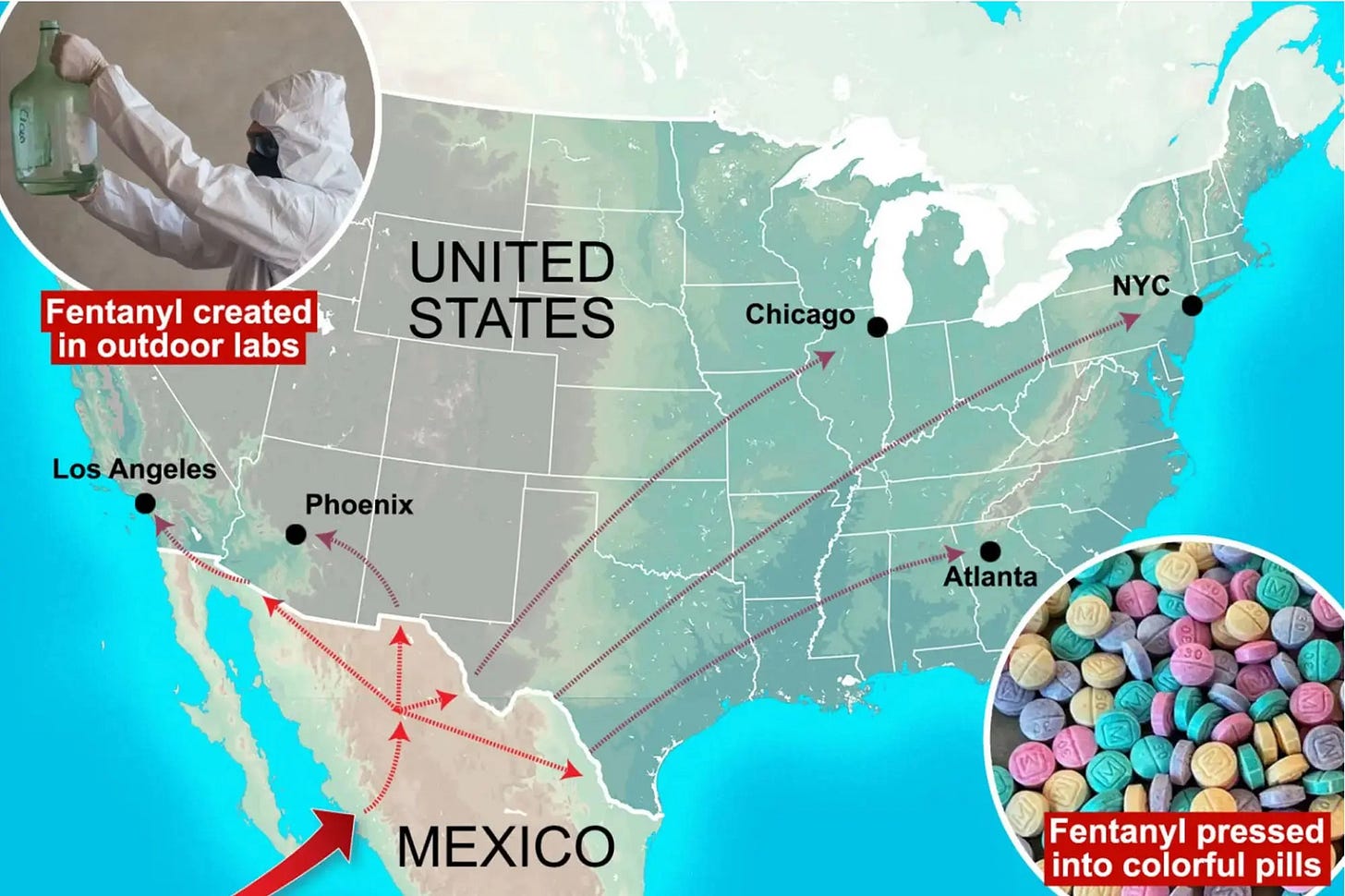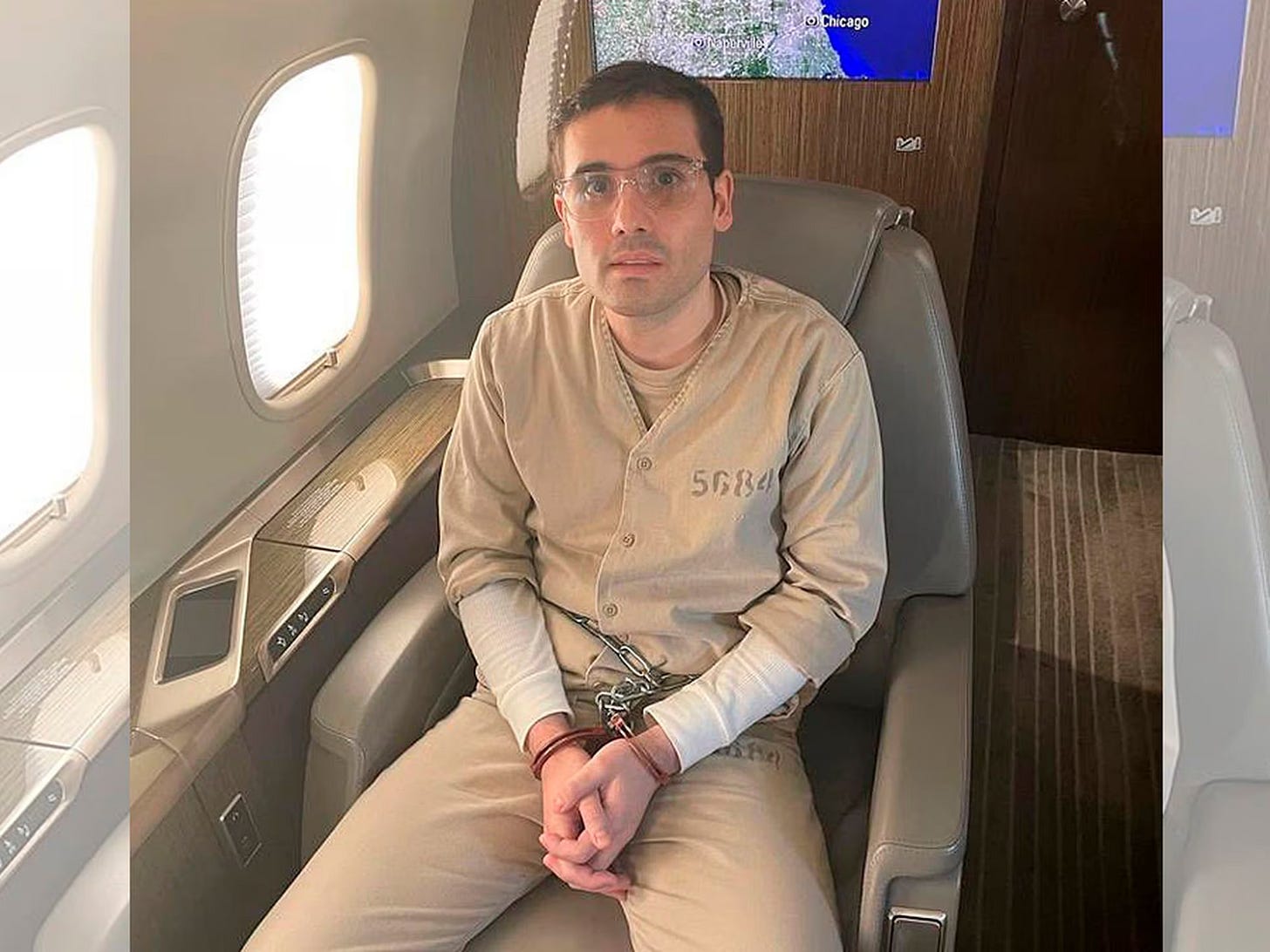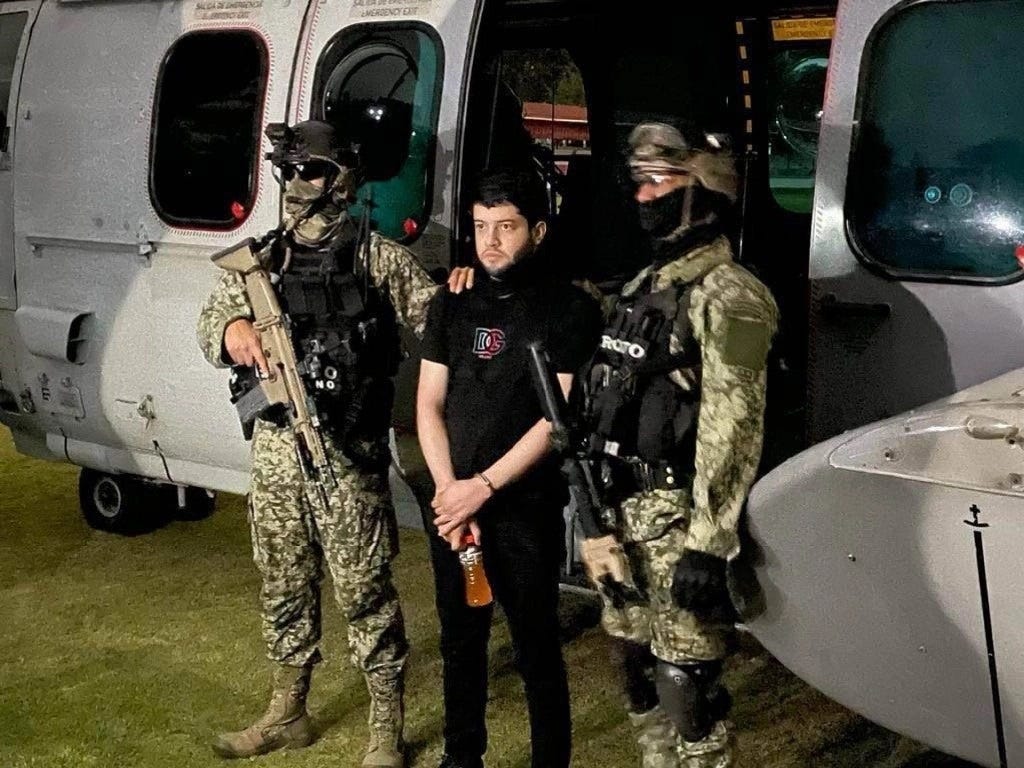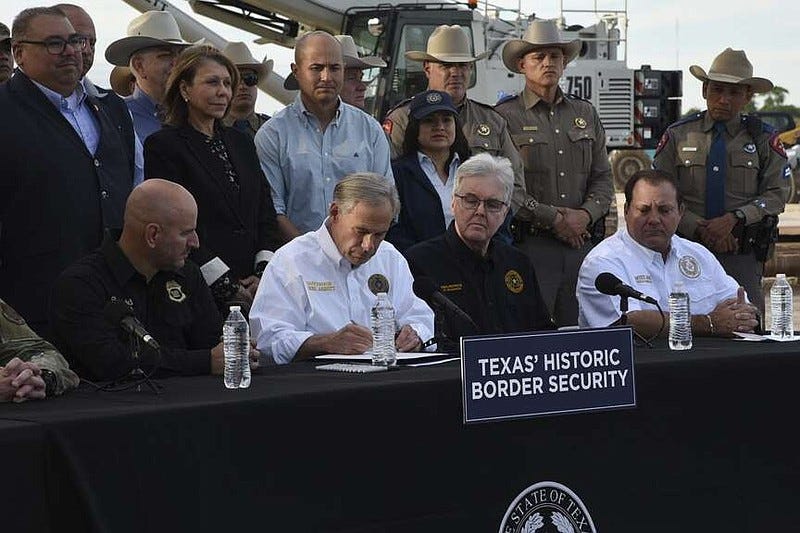The Fentanyl Crisis
How Fentanyl has impacted both the United States and Mexico, Los Chapitos on the run.
The fentanyl that is pouring into the United States from Mexico is at a crisis level. Most of all the precursor chemicals used to manufacture fentanyl comes from China and is synthesized into fentanyl in Mexico. Over 90% of all seizures of fentanyl happen at the US southern border. Border patrol officers are over extended with complex problems that have very political implications. While the large influx of migration from south and central America at the US border, who are seeking asylum and drug trafficking at border check points are distinct, but when combined, they create overlapping problems. The large migration at the border places strain on the U.S. Customs and Border Protection (CBP) service to focus more effectively on the drug trafficking problem. There are not enough resources to combat both issues simultaneously. But the poison of fentanyl flooding the streets of the United States is and should be a major concern.
Last year over 79,000 people in the United States died from overdoses from the highly lethal fentanyl. The crisis is not just a public health emergency but plays a major role in cost to the US economy. The crisis is so serious that the US has called it a significant threat to the US national security. For that reason, the US has recently taken an aggressive approach to fight the trafficking of fentanyl from Mexico. The US treasury has strengthened sanctions against trafficking organization in Mexico, that tries to target financial facilitators.
The US has placed pressure on the Mexican administration of Manuel Lopez Obrador and to a degree, also on the Chinese government. The Sinaloa cartel of Los Chapitos (sons of Joaquin "El Chapo" Guzman) have been the leading criminal organization in Mexico who are mostly behind the trafficking of fentanyl into the US. The United States Department of Justice has made efforts to target the Chapito network and has made significant advances to dismantle some of their fentanyl operations. The DEA unsealed drug trafficking charges against more than 20 Sinaloa Cartel members and their associates. This included all the sons of El Chapo; Ovidio Guzmán López, Jesús Alfredo Guzmán Salazar and Iván Archivaldo Guzmán Sálazar. The DEA has also managed to infiltrate the Trafficking network of Los Chapitos managed by one of the brothers, Ovidio Guzman "El Raton."
In January 2023 Ovidio was arrested in Culiacan after a successful Mexican military operation. A previous attempt to arrest Ovidio that happened in October 2019, known as "El Culiacanazo," had not been very successful. Lopez Obrador had ordered his military to release Ovidio after heavily armed Sinaloa cartel members overwhelmed military and police forces in the city of Culiacan. But this time around Ovidio was quickly extradited to the United States to faces charges related to drug trafficking. That sent a message to the rest of Los Chapitos, who for many years had been untouchable.
Los Chapitos started a campaign to give a perception that they were not behind the production of fentanyl. They released a propaganda letter to the Mexican media where they denied they were behind the production of fentanyl and said that they were not leading the Sinaloa cartel. They also posted narco banners around the state of Sinaloa and other northern border states where they banned the sale, production, and trafficking of fentanyl. They went as far as to execute several independent manufactures of fentanyl and display their bodies next to the fentanyl they were manufacturing. Los Chapitos have tried to keep a low profile and have made every effort to lessen the heat put on by the US government, specifically the DEA.
Except they had a hard time trying to get their organization's leadership to lay low, as most were accustomed of generating violence with total impunity and flaunting their wealth in public. This was the case with their high-ranking plaza boss in Culiacan and security chief, Néstor Isidro Pérez Salas "El Nini." El Nini was out of control and refused to heed the warning by his bosses to keep a low profile. Los Chapitos gave the green light to the Mexican government to arrest El Nini and subsequently, El Nini was arrested in November of 2023. The US is seeking his extradition.
The result of these efforts saw a 60% reduction of seizures of fentanyl in the US border from April to October. The number of the overdoses from fentanyl also saw a small reduction in numbers. A lot of the decline can be attributed to Los Chapitos cutting down on production. But one thing that is for certain, this strategy is most likely just temporary, and it’s just a way to allow for things to cool off. Be assured that they have not totally stopped the production of fentanyl, they just slowed it down some. They are just trying to give a perception. They will not allow other waring rival cartels to make high profits from fentanyl, as they will use the profit to get stronger and become more dominant. That is the way of the Mexican cartels that fight among each other for plazas and control.
The supply of fentanyl to the U.S will probably continue unabated and will probably be taken over by other organizations, such as the Jalisco cartel (CJNG), who will take advantage of the open opportunity. The lure of the profit of fentanyl is too great and too lucrative to be ignored.
The fentanyl crisis has played center stage during this presidential debate on how to fix the problem. Florida Governor Ron DeSantis has vowed to send US special forces into Mexico on "day one" of his administration if elected. Former President Donald Trump vowed to "inflict maximum damage" on cartels using special forces, cyber-war and "other overt and covert actions."
And just recently, Texas Governor Greg Abbott signed into law a package of border security legislation by cracking down on human smuggling and funding the ongoing construction of Texas’ border wall. These measures were announced as an unprecedented effort to hold the line and protect Texans from the record level of illegal immigration, weapons, and deadly drugs pouring into Texas from Mexico. This measure will allow local law enforcement to detain and deport illegal migrants back to Mexico.
Regardless of what happens, one thing is clear, the fight to keep illicit drugs from pouring into every city of the US will continue to be a daunting task that will require more resources and develop a meaningful strategic relationship with Mexico and China. The key to even coming close and possibly eradicating drug trafficking lies in the ability to shut down the flow from the source, anything else, is just a futile attempt to fight an unwinnable war.







